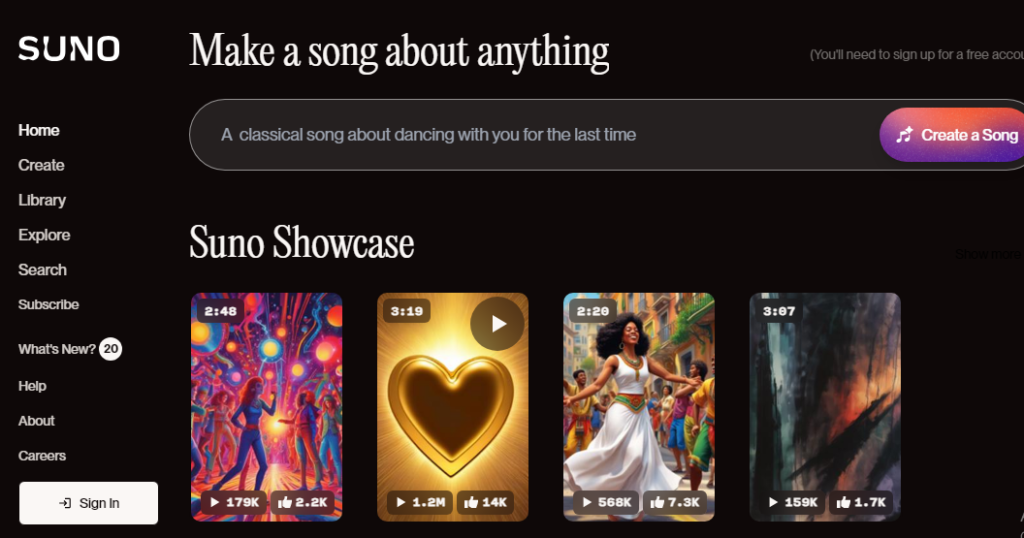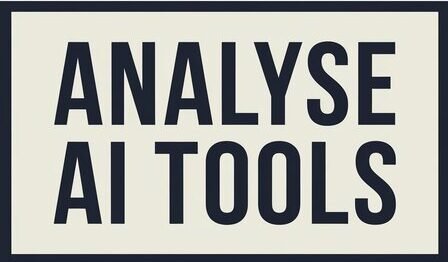As a content creator, you’re always on the lookout for high-quality music to elevate your projects without breaking the bank or infringing on copyright laws. You’ve likely stumbled upon Suno AI, an innovative music generation platform that promises to revolutionize the way we access and use music. But, before you dive in, you might have a few questions like, Is Suno AI Safe? – Is Suno AI music really copyright-free? Can you use it without worrying about legal repercussions or paying hefty royalties? In this guide, we’ll research into the world of Suno AI and explore the answer to this crucial question.
Understanding Suno AI Music
Pertaining to exploring the world of AI-generated music, you’re likely to come across Suno AI music. But before entering into the copyright implications, let’s take a step back and understand what Suno AI music is all about.
What is Suno AI Music?

Melodic sounds and harmonies crafted by artificial intelligence – that’s Suno AI music in a nutshell. You can think of it as a symphony of algorithms and machine learning techniques that come together to create unique soundtracks. With Suno AI, you can generate music that’s tailored to your preferences, mood, and style.
How does Suno AI music work?
Understanding the intricacies of Suno AI music involves grasping its underlying technology. Essentially, the platform uses complex algorithms to analyze and process vast amounts of music data. This enables the AI to learn patterns, identify trends, and ultimately generate original compositions that resonate with your ears.
Music generation with Suno AI involves a fascinating process. You see, the AI system is trained on a massive library of songs, which allows it to recognize and mimic various styles, genres, and moods.
When you input your preferences, the AI kicks into gear, combining and rearranging musical elements to create a bespoke soundtrack that’s both novel and engaging. The result is a unique sound that’s often indistinguishable from human-composed music.
Types of Suno AI Music
If you’re considering using Suno AI music for your project, it’s necessary to understand the different types of licenses they offer. Suno AI provides a range of music options, each with its own set of rules and regulations.
Here’s a breakdown of the types of Suno AI music:
| License Type | Description |
| Royalty-free music | Music that requires a one-time payment, allowing you to use it without paying royalties. |
| Creative Commons music | Music licensed under Creative Commons, which allows for free use under certain conditions. |
| Public Domain music | Music that is no longer protected by copyright, making it free to use without restrictions. |
| Custom music | Music created specifically for your project, often with exclusive rights. |
Recognizing the differences between these licenses is crucial to ensure you’re using Suno AI music legally and ethically.
Royalty-free music
The royalty-free music offered by Suno AI allows you to pay a one-time fee to use the music in your project. This means you won’t have to pay royalties every time the music is played or used.
Creative Commons music
Music licensed under Creative Commons is available for free use, but it often comes with certain conditions, such as attribution or non-commercial use.
Commons licenses can be complex, so it’s necessary to understand the specific terms and conditions attached to each piece of music.
Public Domain music
You can use Public Domain music without worrying about copyright restrictions or paying royalties. This music is no longer protected by copyright, making it free to use in your project.
Domain music is often older, classical, or folk music that has fallen out of copyright protection. Suno AI’s Public Domain music collection offers a range of options for your project.
Is Suno AI Music Copyright Free?
Factors Affecting Copyright Status
Despite the claims of AI music being copyright-free, there are several factors that can affect the copyright status of Suno AI music. These factors can determine whether you need to obtain permission or pay royalties to use the music in your projects.
- Music composition
- Sound recording
- Licensing agreements
Music Composition
You need to consider the original composition of the music generated by Suno AI. If the AI algorithm uses copyrighted melodies or chord progressions, the resulting music may not be entirely copyright-free.
Sound Recording
Status of the sound recording itself is another crucial factor. Even if the composition is original, the sound recording may still be protected by copyright.
Recording and production techniques, such as the use of specific instruments or effects, can also impact the copyright status of the sound recording. These elements may be owned by the creators of the AI algorithm or third-party providers.
Licensing Agreements
Agreements between Suno AI and its users can also affect the copyright status of the generated music. These agreements may specify the terms of use, including any restrictions or requirements for obtaining permission or paying royalties.
Composition and sound recording licenses may be bundled together or separate, and understanding the terms of these licenses is crucial to determine the copyright status of Suno AI music. Knowing these factors will help you navigate the complexities of copyright law and ensure you’re using the music legally and ethically.
Tips for Using Suno AI Music
Knowing these tips will help you navigate the world of Suno AI music and ensure you’re using the platform responsibly and legally.
For a seamless experience with Suno AI music, follow these necessary tips to ensure you’re using the platform correctly and avoiding any potential copyright issues:
Understanding licensing terms
Licensing agreements outline the rules for using Suno AI music. Take the time to read and comprehend the terms, as they may vary depending on your use case.
Reading user agreements carefully
Agreements can be lengthy, but it’s crucial to read through them thoroughly to understand your rights and obligations when using Suno AI music.
The fine print may contain important details about usage limitations, royalties, or other requirements that affect your project.
Verifying copyright status
Agreements aside, it’s necessary to verify the copyright status of any Suno AI music you plan to use. This ensures you’re not infringing on someone else’s rights.
Understanding the copyright status of a track will give you peace of mind and protect your project from potential legal issues.
Step-by-Step Guide to Verifying Copyright Status
Not sure where to start? Verifying the copyright status of Suno AI music can be a straightforward process. Here’s a breakdown of the steps you can take:
| Step | Description |
|---|---|
| 1. Check the Suno AI website | Review the website’s terms and conditions, FAQs, and music licensing pages for information on copyright and usage rights. |
| 2. Contact Suno AI support | Reach out to Suno AI’s customer support team to ask about the copyright status of specific music tracks or albums. |
| 3. Conduct a copyright search | Use online databases and registries to search for copyright information related to the music you’re interested in using. |
Checking the Suno AI website
Website terms and conditions can provide valuable insights into the copyright status of Suno AI music. Take a closer look at the website’s FAQs, music licensing pages, and terms of service to see if they address copyright and usage rights.
Contacting Suno AI support
Any questions or doubts you have about the copyright status of Suno AI music can be directed to their customer support team. They may be able to provide you with specific information or point you in the right direction.
Support teams often have access to information that’s not publicly available, so don’t hesitate to reach out. Be prepared to provide details about the music you’re interested in using, such as the track title or album name.
Conducting a copyright search
You can use online databases and registries to search for copyright information related to the music you’re interested in using. These searches can help you identify the copyright owner and determine if the music is protected by copyright.
Guide yourself through the search process by using keywords like the song title, artist name, or album title. You can also use advanced search filters to narrow down your results. Remember to take note of any copyright information you find, as it will be vital in determining the copyright status of the music.
Pros and Cons of Using Suno AI Music
After considering whether Suno AI music is copyright-free, it’s important to weigh the advantages and disadvantages of using this innovative technology in your projects.
| Pros | Cons |
|---|---|
| High-quality, unique soundtracks | Limited customization options |
| Faster production and delivery | Potential for similar soundtracks |
| Cost-effective compared to traditional composers | Lack of human touch and emotional depth |
| Easy integration with various platforms | Dependence on AI algorithms and technology |
| Constantly updated and improved soundtracks | Possible errors or inaccuracies in AI-generated music |
| Access to a vast library of soundtracks | Unclear ownership and rights issues |
| Streamlined workflow and collaboration | Technical difficulties or downtime |
| Scalability and adaptability to various projects | Limited control over the creative process |
| Environmentally friendly and sustainable | Uncertainty about the future of AI-generated music |
Advantages of using Suno AI music
One of the significant benefits of using Suno AI music is the ability to access high-quality, unique soundtracks quickly and efficiently. This can greatly enhance your projects, providing an engaging and immersive experience for your audience.
Disadvantages of using Suno AI music
To begin with, you may find that the customization options for Suno AI music are limited, which could restrict your creative vision. Additionally, there’s a risk that the AI-generated soundtracks may lack the emotional depth and human touch that a traditional composer can bring to a project.
Cons may also arise from the dependence on AI algorithms and technology, which can be prone to errors or inaccuracies. Furthermore, the ownership and rights issues surrounding AI-generated music are still unclear, which could lead to potential legal complications. By understanding these pros and cons, you can make an informed decision about whether Suno AI music is the right fit for your projects.
Summing up
Following this exploration of Suno AI music, you now have a clear understanding of its copyright status. You’ve learned that Suno AI generates original music tracks that are free from copyright restrictions, making them suitable for your personal or commercial projects.
With Suno AI, you can confidently create content without worrying about infringing on someone else’s intellectual property. This freedom allows you to focus on your creative vision, knowing that your soundtrack is entirely yours to use and distribute as you see fit.
